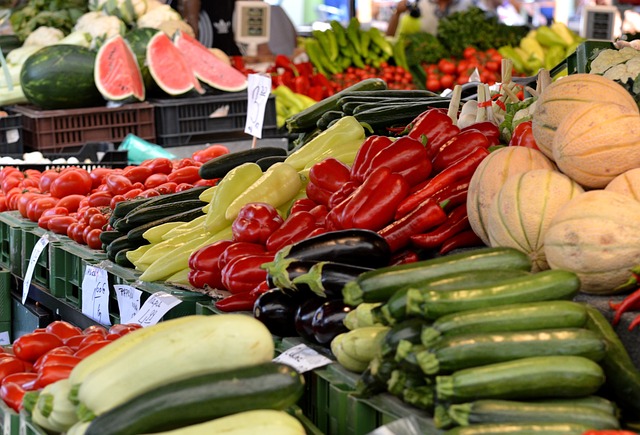Proper yard waste removal and recycling, including composting and chipping, are essential for reducing landfill waste, mitigating methane emissions, and fostering sustainable landscapes. Homeowners can contribute by employing simple techniques like compost bins and integrating compost into gardening practices. These eco-friendly practices not only benefit the environment but also enhance garden health and aesthetics while saving time and money. Local programs and initiatives further facilitate responsible yard waste management.
Managing garden waste can be a challenge for busy homeowners, but efficient strategies are essential for a greener, more sustainable lifestyle. This article explores the importance of understanding yard waste, its types, and environmental impact. We delve into the benefits of effective management, offering eco-friendly solutions tailored to home environments. From implementing recycling practices to adopting regular removal routines, discover practical tips for optimizing your garden waste handling and contributing to a cleaner, more sustainable future.
- Understanding Yard Waste: Types and Impact
- The Benefits of Efficient Garden Waste Management
- Implementing Eco-Friendly Solutions at Home
- Effective Strategies for Regular Yard Waste Removal
Understanding Yard Waste: Types and Impact

Yard waste, a term that encompasses a variety of organic materials discarded from gardens and landscapes, includes leaves, grass clippings, plant trimmings, and sometimes even food scraps. Proper management of this waste is not just about aesthetics; it has significant environmental implications. Unmanaged yard waste often ends up in landfills, contributing to methane emissions and adding to the growing problem of waste disposal.
Effective yard waste removal and recycling practices can substantially reduce this impact. Recycling yard debris through composting or chipping turns these materials into valuable resources that enrich soil fertility. Homeowners can play a crucial role by adopting simple strategies such as using compost bins for organic scraps and integrating compost into their gardening routines. This not only reduces the volume of waste sent to landfills but also fosters healthier, more sustainable gardens.
The Benefits of Efficient Garden Waste Management

Efficient garden waste management offers numerous benefits for busy homeowners. By implementing proper practices, you can reduce the amount of yard waste sent to landfills, thereby minimizing environmental impact and promoting sustainable living. Recycling and composting are effective strategies that transform organic materials into valuable resources, enriching your garden soil and supporting a healthier ecosystem.
Moreover, efficient waste management saves time and money. It eliminates the need for frequent yard waste removal, reduces the risk of pest infestations and disease spread, and contributes to a more aesthetically pleasing outdoor space. With proper techniques in place, homeowners can enjoy a balanced and harmonious relationship with their gardens, ensuring both productivity and peace of mind.
Implementing Eco-Friendly Solutions at Home

In today’s eco-conscious world, homeowners are increasingly looking for sustainable solutions to manage their garden waste. Implementing eco-friendly practices at home doesn’t have to be complex; in fact, it can be a straightforward and rewarding process. One of the most effective ways to do this is through yard waste removal and recycling. By separating organic materials like grass clippings, leaves, and food scraps from regular trash, homeowners can reduce their environmental footprint significantly. Composting these items not only minimizes yard waste but also creates nutrient-rich soil that can be used to fertilize gardens, promoting healthier plants and reducing the need for chemical fertilizers.
There are various simple steps to adopt this approach. Homeowners can start by investing in a composting bin or using designated areas in their yards for compost piles. Local government initiatives and community programs often provide resources and guidance on effective yard waste recycling methods. Additionally, many cities offer curb-side collection services for organic materials, making it easier than ever for busy homeowners to participate in eco-friendly solutions without compromising their lifestyles.
Effective Strategies for Regular Yard Waste Removal

Staying on top of yard waste removal is essential for maintaining a clean, safe, and aesthetically pleasing outdoor space, even with a busy schedule. Implementing effective strategies ensures that your garden doesn’t become overwhelmed by debris, promoting both environmental health and home aesthetics. Regular collection and recycling of yard waste not only reduces clutter but also contributes to a greener planet by cutting down on landfill waste.
Consider setting up a consistent collection system, such as scheduling outdoor trash day with your local waste management services or investing in a reliable garden composter. For organic materials like grass clippings, leaves, and vegetable scraps, composting offers a sustainable solution, enriching soil and fostering a healthier lawn. Additionally, exploring local recycling programs for yard waste, including wood chips and certain types of plastic gardening containers, can further minimize environmental impact.
In today’s fast-paced world, effective garden waste management is a game-changer for busy homeowners. By understanding the types and impact of yard waste and implementing eco-friendly solutions, you not only contribute to environmental sustainability but also enhance your living space. Regular removal and recycling of yard waste not only keeps your home clean but also promotes a healthier, more vibrant landscape. So, take a dive into these strategies and transform your garden waste management into a simple, beneficial routine.



